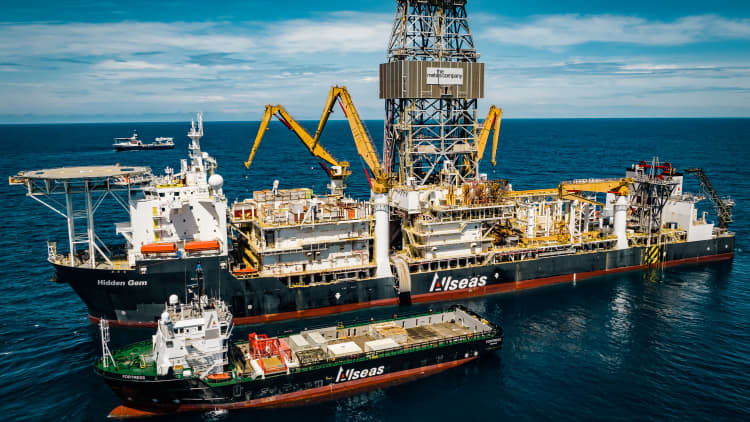
Norway has officially suspended its plan to open its seabed to large-scale deep-sea mining, following mounting opposition.
The Norwegian government had initially planned to allow companies to apply for licenses to mine 280,000 square kilometers (108,000 square miles) of its waters for valuable metals, an area larger than the United Kingdom. However, this plan was blocked after the Socialist Left Party stated it would not support the government’s budget unless the first licensing round, scheduled for 2025, was scrapped.
Environmental scientists had raised serious concerns, warning that deep-sea mining could have catastrophic effects on marine life. The plan faced opposition from 32 countries, including France, Canada, Brazil, and Germany, highlighting growing international criticism of the project.
Prime Minister’s Statement and Greenpeace Response
Prime Minister Jonas Gahr Støre called the decision a “postponement”, emphasizing that preparatory work on environmental regulations and impact assessments would continue. Greenpeace Norway celebrated the move as a “huge win,” with spokesperson Haldis Tjeldflaat Helle saying it was “embarrassing” for Norway to promote itself as an ocean leader while pushing for practices that could harm ocean ecosystems.
The Norwegian energy ministry has not yet issued a statement on the delay.
The Controversy Behind the Deep-Sea Mining Plan
Norway’s move to approve commercial-scale deep-sea mining in January made it the first country to move forward with such a project. The seabed is home to critical minerals like lithium, scandium, and cobalt, which are essential for green technologies such as electric vehicle batteries and renewable energy infrastructure.
While these metals are also found on land, their concentrated availability in only a few countries creates supply risks, which Norway sought to address by extracting them from its own seabed. The government stressed it would only proceed with the project after conducting further environmental research.
Global Opposition and Environmental Concerns
Norway’s deep-sea mining plan has faced significant opposition from environmental groups and international bodies. The European Union (EU) and the UK have called for a temporary ban on seabed mining due to environmental risks, and over 100 EU lawmakers urged Norway to abandon the project, citing threats to marine biodiversity and the acceleration of climate change.
The Institute of Marine Research in Norway criticized the government’s initial environmental research, suggesting that five to ten more years of studies were necessary before moving forward. The World Wide Fund for Nature (WWF) has even announced it will sue the government over the plans.
Industry Impact and Project Delays
At least three Norwegian seabed mineral start-ups had expressed interest in bidding for licenses in the first round. Green Minerals, one of these companies, stated that the suspension could delay the project by up to a year.
Conclusion
Norway’s decision to pause its deep-sea mining project reflects the growing environmental concerns surrounding seabed extraction. As global demand for critical minerals continues to rise, finding a balance between sustainable development and environmental protection remains a significant challenge.









